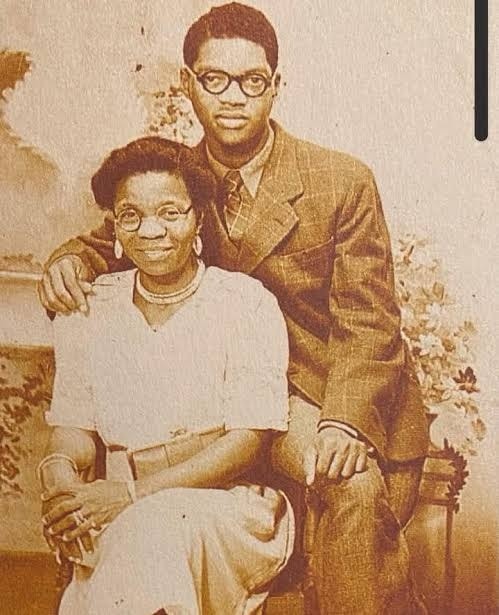Shared Heritage
Grace Eniola Soyinka (1908–1983) and her cousin Professor Olikoye Ransome-Kuti (1927–2003) belonged to one of Nigeria’s most influential Yoruba families. Their mothers were sisters from the celebrated Ransome-Kuti lineage of Abeokuta, Ogun State—a family renowned for its pioneering roles in education, Christian ministry, and social reform.
Grace was the daughter of Anne Lape Iyabode Ransome-Kuti, making her a niece—not a daughter—of the celebrated clergyman-musician Rev. J. J. Ransome-Kuti. She grew up in the same household network that nurtured political activist Funmilayo Ransome-Kuti, who later married Grace’s uncle Rev. Israel Oludotun Ransome-Kuti. Olikoye, born almost two decades after Grace, was the first son of Israel and Funmilayo. This close-knit clan produced some of Nigeria’s most outspoken advocates for justice, cultural identity and social progress.
Grace Eniola Soyinka: Women’s Leader and Mother of a Nobel Laureate
Grace married the Anglican clergyman Samuel Ayodele Soyinka and became the mother of Wole Soyinka, Nigeria’s first Nobel Prize laureate in Literature (1986). But her influence reached far beyond motherhood.
She was an active member of the Abeokuta Women’s Union (AWU)—founded by her aunt Funmilayo—where she helped challenge oppressive colonial taxation and advocated for women’s rights. Grace combined the discipline of Christian mission schooling with a deep respect for Yoruba culture, shaping her children’s intellectual curiosity and fearless social conscience.
Her home doubled as a forum for cultural and political debate, giving young Wole the formative environment that later inspired his dramatic works challenging colonial and military oppression. In his memoir Aké: The Years of Childhood (1981), Soyinka vividly recalls his mother’s moral courage and her steadfast commitment to both faith and social justice.
Olikoye Ransome-Kuti: Physician and Global Health Advocate
Professor Olikoye Ransome-Kuti emerged as one of Nigeria’s most respected pediatricians and public health reformers. After medical training in London and Lagos, he served as Nigeria’s Minister of Health (1985–1992) and became a leading voice in global health policy.
Olikoye championed Primary Health Care (PHC) in line with the 1978 Alma-Ata Declaration, bringing affordable maternal and child health services to rural communities. He was also one of the first African leaders to speak openly about the HIV/AIDS epidemic, breaking the silence and stigma that had hindered early prevention efforts. His pragmatic, community-based approach earned international recognition from agencies such as UNICEF and the World Health Organization.
A Family of Bold Voices
Though raised in a devout Anglican tradition, the Ransome-Kuti and Soyinka households consistently challenged entrenched power structures. Grace’s son Wole Soyinka became a global literary figure and outspoken critic of political tyranny. Olikoye’s younger brother, Fela Anikulapo Kuti, pioneered Afrobeat music as a vehicle for fearless political protest.
This intergenerational blend of Christian mission influence, Western education and Yoruba cultural pride forged a distinctive tradition of outspoken activism—one that spanned literature, music, medicine and politics.
Enduring Legacy
The lives of Grace Eniola Soyinka and Olikoye Ransome-Kuti illustrate how a single extended family helped shape modern Nigerian identity. Their commitment to education, social reform and cultural self-determination continues to resonate through the achievements of their descendants and the lasting impact of their own work.
Key Sources
Wole Soyinka, Aké: The Years of Childhood (1981).
Olasope O. Oyelaran, “The Ransome-Kuti Family and the Making of Modern Nigeria,” African Affairs (1999).
Oba Femi Kuti & Benson Idonije interviews on the Ransome-Kuti family legacy (various press features).
Nigerian Ministry of Health archives and WHO/UNICEF reports on Primary Health Care in Nigeria (1980s).
FOLLOW US ON:
FACEBOOK
TWITTER
PINTEREST
TIKTOK
YOUTUBE
LINKEDIN
TUMBLR
INSTAGRAM































